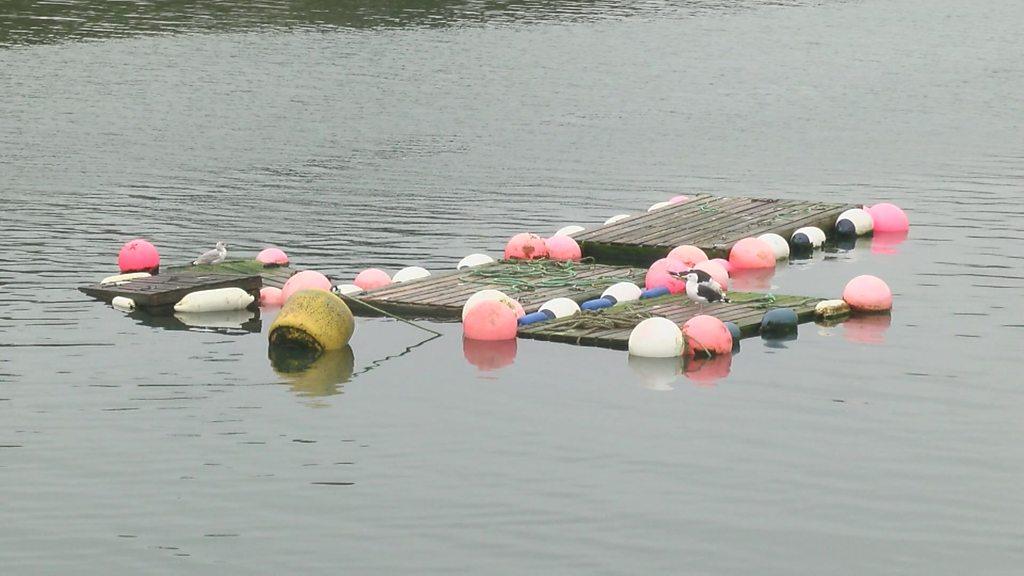Consultation amid low crab and lobster numbers
- Published
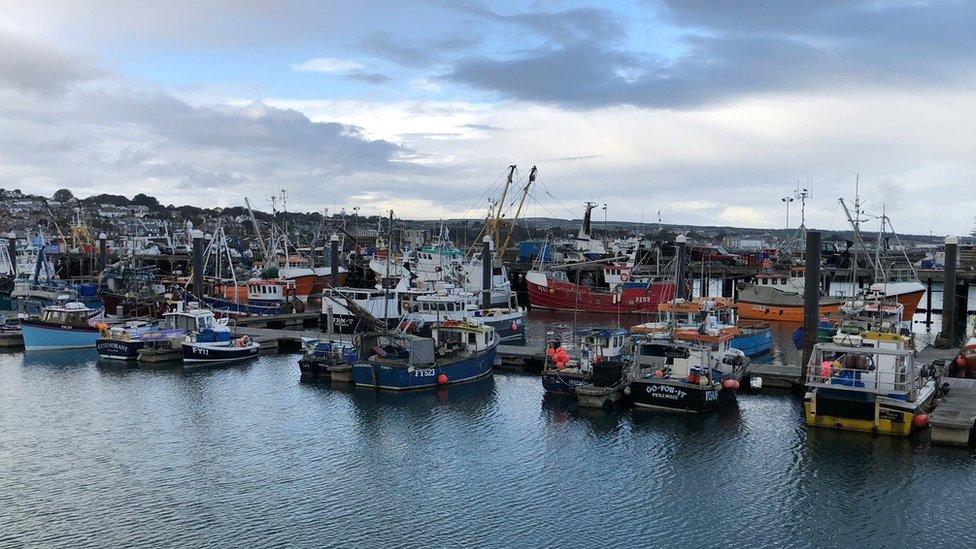
The public consultation, launched by Defra, closes on 1 October
Members of the fishing industry are being asked for their views to inform a plan to ensure crab and lobster are caught sustainably.
It comes amid concerns crab and lobster populations could be "vulnerable" to over-fishing.
The Department for Environment, Food & Rural Affairs (Defra) is running a public consultation on the issue, external.
The consultation is part of the post-Brexit management of sustainable fishing stocks.
Padstow inshore fisherman Johnny Murt said he was concerned about the impact of industrial fishing.
He said he welcomed more regulation around lobster and crab fishing in Cornwall.
Mr Murt said inshore fishermen in Padstow had been forced to increase their gear in recent years to catch "an increasingly lower number of lobster and crab".
He said this seemed to coincide with "industrial fishing" turning up on the coastline.
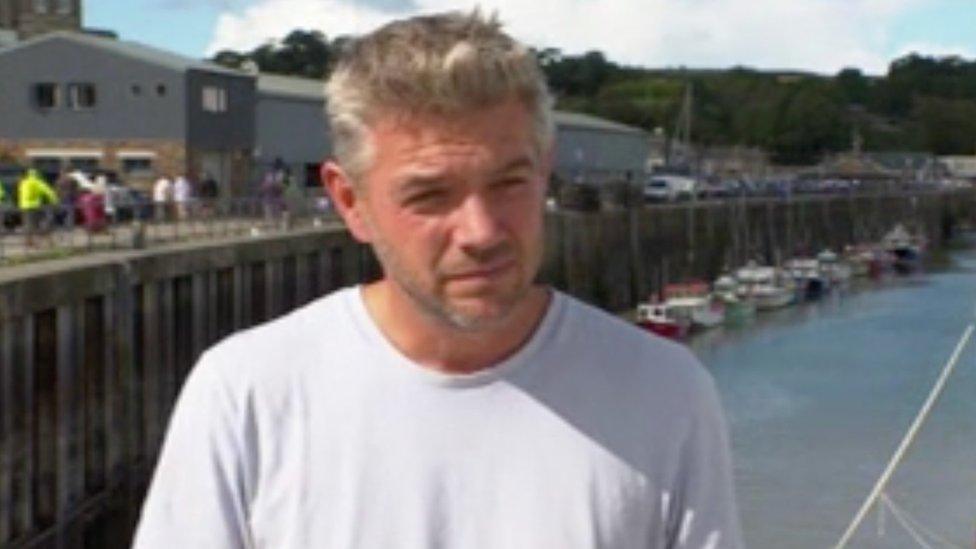
Johnny Murt said he thought there needed to be more regulation around lobster and crab fishing generally
Mr Murt said: "As we've seen a decline, it's been this general shift to working more gear, when in reality we should be looking to work with a bit less gear so we can let the stocks recover somewhat...
"I'd like to see pot limitations, I'd like to see... quota even, anything that just restricts the effort, however you want to define effort restriction, we need it."
'On the front foot'
Chris Ranford, CEO of the Cornish Fish Producers Organisation, said it was "an interesting time" for the industry to "engage and take part".
He said: "We're in this period at the moment where we're coming up with new ways to manage our fisheries, which is a result of leaving the European Union, so this is our first go at managing our own fisheries as an independent coastal state."
He said the Cornish fishing industry was "always on the front foot" when it came to sustainability.
"We, as the Cornish Fish Producers Organisation, in terms of shellfish actually have our own voluntary management measures, so we're getting ahead of regulation where we can."
'Unsustainable levels'
In the consultation report, external, Defra said a fisheries management plan (FMP) on crab and lobster stocks had been prioritised for early development due to the "vulnerability" of these stocks to "over-exploitation, their economic value, and the need for more evidence and data to properly assess and monitor the state of the stocks".
FMPs are evidence-based action plans, developed with input from the fishing industry and other stakeholders.
They provide the framework to build and maintain sustainable fish and shellfish stocks by setting out a range of policies - based on scientific evidence - which detail how fishing is managed, by stock, fishery, or location.
Defra said in the longer-term it would also look at making additional improvements - such as seasonal closures, effort limits, and pot and catch limits.
The deadline for people to express their opinions on the proposals is 1 October.

Follow BBC News South West on Twitter, external, Facebook, external and Instagram, external. Send your story ideas to spotlight@bbc.co.uk, external
- Published30 June 2023
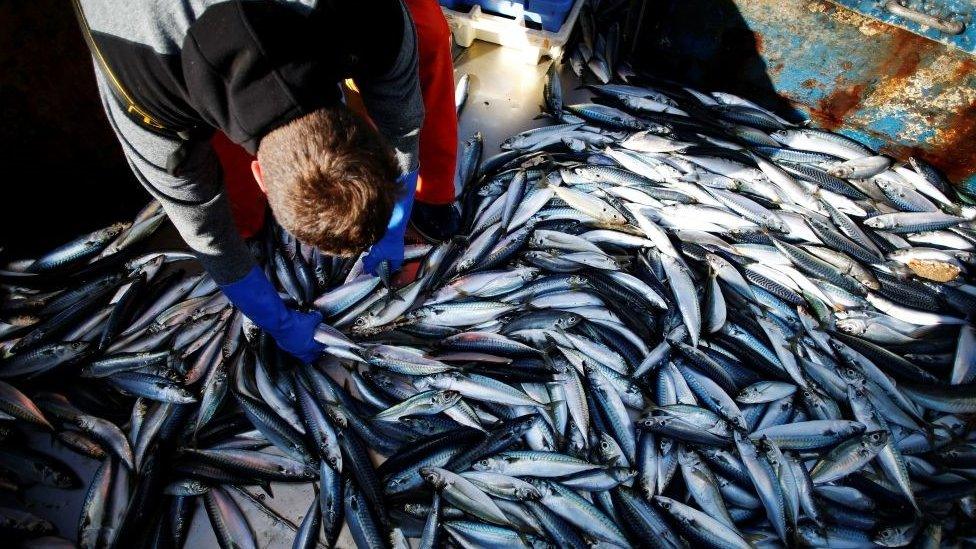
- Published13 January 2023
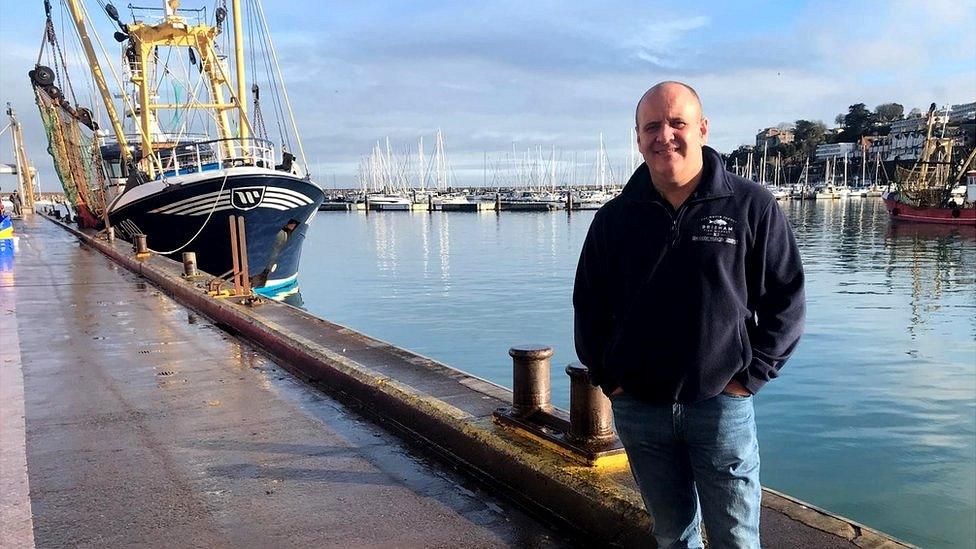
- Published2 September 2016
